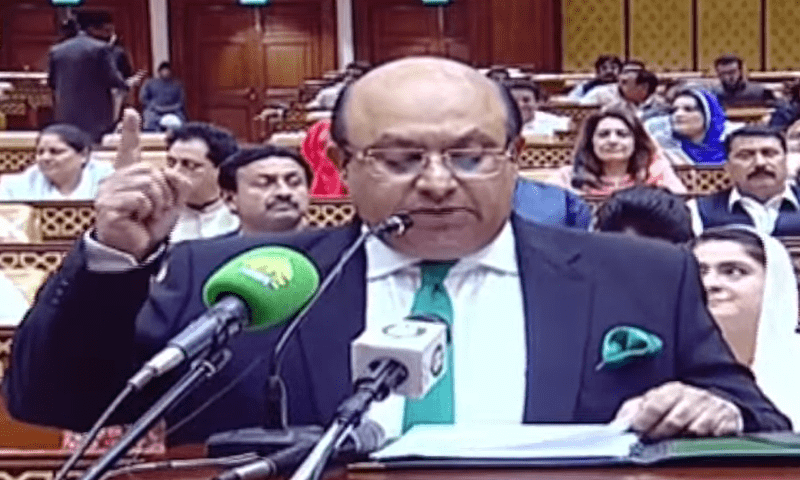Lahore: Finance Minister Mujtaba Shujaur Rehman on Thursday presented a budget of Rs5,446 billion for the fiscal year 2024-25 in The Punjab Assembly.
Punjab has closed Rs530 billion worth of dead schemes from the development budget and included new schemes. The new budget does not impose any new taxes nor increase existing tax rates.
Revenue will be increased by 53 per cent through financial sources without raising taxes.
The budget includes Rs842 billion for development expenses and a surplus budget of Rs630 billion.
The annual development plan will feature 77 new mega projects. Punjab has approved an increase in the minimum wage from Rs32,000 to Rs37,000. Salaries will rise by 20 to 25 per cent and pensions by 15 per cent.
Rs1 billion has been allocated to the Minority Development Fund. Approval was given for the repayment of Rs375 billion wheat loan, saving over Rs54 billion in interest.
Rs6 billion were allocated for the laptop scheme and Rs5 billion for the PKLI Endowment Fund. A sum of Rs130 billion was earmarked for social protection, a record increase of Rs110 billion.
Punjab collected 36 per cent more tax than the FBR target. A supplementary grant of Rs268 billion was approved for the 2023-24 budget. The supplementary budget statement for the fiscal year 2023-24 was also approved.
Additional allocations include Rs26 billion for agricultural equipment, Rs10 billion for the Kisan Card, Rs30 billion for the CM Green Tractor Programme, and Rs80 billion for the CM District SDG Programme.
For Lahore’s development, Rs35 billion was allocated, Rs5 billion for Murree, Rs2 billion for the Livestock Card, Rs2 billion for the Himmat and Nigehban Card, and Rs26 billion for restructuring education.
Pakistan People’s Party (PPP) boycotted the Punjab Assembly session symbolically as only two members attended the session.
PPP leader Haider Gilani said PPP was not included in the consultation in the preparation of the budget and could not support the government's budget in these circumstances.


